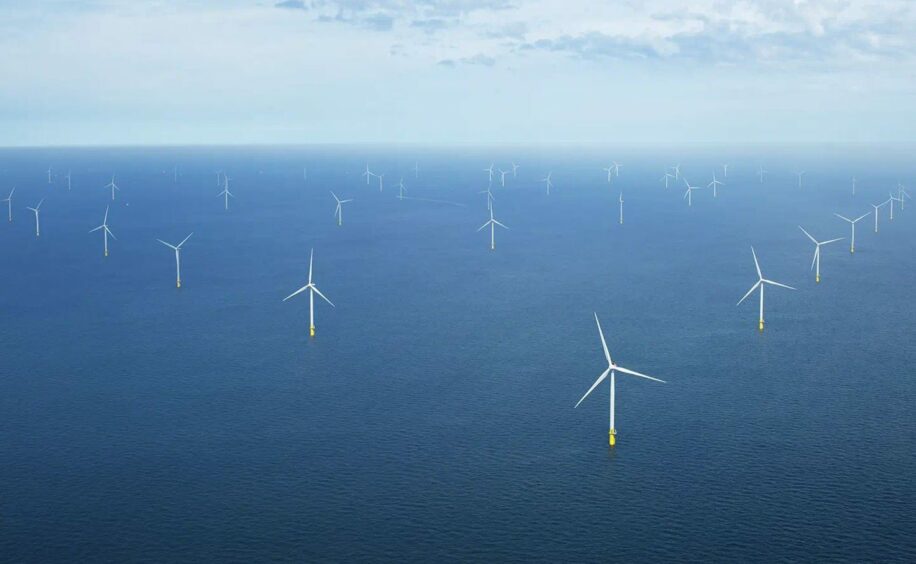
The Dutch government will extend its offshore wind goals to target 70 gigawatts (GW) of capacity by 2050 and expand hydrogen production in the North Sea.
The new 2050 target stretches the country’s current goal to install 21GW of offshore capacity by 2030, and includes a mid-term target of around 50GW by 2040.
21GW would be enough to meet around 75% of current electricity consumption, the government said.
Alongside electricity generation, the cabinet said it also intends to establish large-scale hydrogen production, in a bid to enable energy-intensive industries to switch from gas to green hydrogen.
From 2030, new offshore wind capacity will mainly be located in remote areas “hundreds of kilometres” from the coast.
These areas will then be used as hubs for new hydrogen and offshore wind facilities, with nodal connections that would enable electricity output to be used flexibly – for example to supply power onshore during high demand, or produce hydrogen during times of excess generation.
This nodal approach will also use fewer cables, and may enable internconnection with other North Sea neighbours.
Minister for Climate and Energy, Rob Jetten commented: “Earlier this year, we made firm plans for 2030. We are now also laying down an ambitious plan up to 2050. This gives us the space to look further ahead and work carefully. 70 gigawatts of power is very ambitious and in the coming years we will look at exactly how many gigawatts are needed.”
“This gives us the opportunity to sustainably electrify a large part of the Netherlands and to generate green hydrogen for industry, for example. We work carefully in this regard, with a great eye for nature above and below water and other interests in the North Sea such as food production, shipping, defense and coastal defence.”
In May, energy ministers from Denmark, Germany, Belgium and the Netherlands have pledged to install at least 150GW of offshore wind by 2050, in a bid to support the EU’s drive to reduce its use of Russian oil and gas.
Meanwhile, the Dutch government has also signalled its intention to impose a price cap on energy contracts from 1 January next year as it looks to protect consumers from soaring prices, according to reports by Dutch broadcaster NOS and Reuters.
The policy would see energy prices capped January 2022 levels, based on the average amount of gas and electricity used by households, NOS said, citing government sources.
Recommended for you
